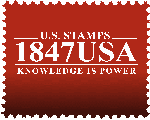
Information Rift, Philately, and Young Collectors
By Don Denman
I think a significant number of new hobbyists are alienated from our hobby due to our legacy of limiting access to information: I call this the ‘information rift’.
Our hobby, and many in it, have had the legacy of paying for access to philatelic information. Catalogs, albums, magazines, reference books, clubs, organizations, and shows all traditionally have had paid access. This has led many experienced collectors to form the opinion, ‘I had to pay for philatelic information, I paid my dues, so new hobbyists should expect to pay too’. But the true value of knowledge comes from sharing it, not just having it.
But many people now have different expectations about access to information; some are the first generation to have always lived with internet access. (The internet penetration rate in the US is now over 90% and over 95% in the EU.) So while some folks will comment about the time some people spend on their smart phones they are missing the impact this has had on the people’s perspective regarding information access.
If a person has a passing interest in our hobby what happens when they try to find information? Will they be willing to lay out a week’s pay just to purchase a set of catalogs just to see if stamp collecting is for them? Or will they be able to find a wealth of online, captivating resources which further encourages further involvement? How well does philately compete with other interests in offering information to people?
I think people are no longer to pay for basic hobby information. Moving forward and if a hobby desires to grow, basic information needs to be accessible online and without cost. Philatelic organizations and companies will need to figure out how to generate new, online profit centers beyond building access barriers to information. Many folks are simply not willing to spend money on memberships to a club that delivers information they expect to get for free.
Trying to close the ‘information rift’ neither easy or without risk. On the individual level it requires us to put aside our own history and understand that access to information has drastically changed. Evidence of our own ignorance on this topic is reveled any time we discuss the health of the hobby; over and over we hear that our hobby is dying. This viewpoint is only justified by using metrics from the 1960s such as the declining number of brick and mortar dealers, declining memberships in clubs, and declining stamp show attendance. But the truth is that no one has any kind of understanding on how the hobby has transitioned to being online. We have to stop thinking that we are living in 1960.
And organizations and companies that traditionally relied upon published paid philatelic information are now staring at a very scary and harsh reality. They can no longer sit back and resist change, they will need to bring in staff people who have the understanding of how to generate income in new ways. A vision which includes the understand that publishing a website is meaningless if it is not accompanied by new monthly content and online resources. It isn’t the initial development that counts, it is the investment in content and tools that will generate online traffic week in and week out. A website is not like publishing a book, it is like publishing a magazine.
How do you know if a company or organization is missing the ‘information rift’ boat? When it tries to outsource its core competency of delivering philatelic information. These organizations and companies need leaders who have this vision and are willing to drive it. These organizations and companies need staffers who are web-enabled and technically inclined. But most of all, these organizations and companies need the courage to walk away from their legacy profit centers and embrace new ways of generating income. A simple ‘web presence’ that seeks to generate memberships is not effective nor will it help grow our hobby. Of course there will always a place for paid captivating new content and useful tools that will assist in adding membership value, but basic philatelic information should be freely available.
Unfortunately much time has already been lost and our hobby is continues to lag behind but I am pleased that there has been significant grass roots online efforts. Communities like SCF (Stamp
Community Family forum) are thriving and websites like Stamp Smarter continue to grow and generate large amounts of traffic. It is online resources like these which are attracting hobbyists because they offer free, real-time access to hobbyists of every experience level.





